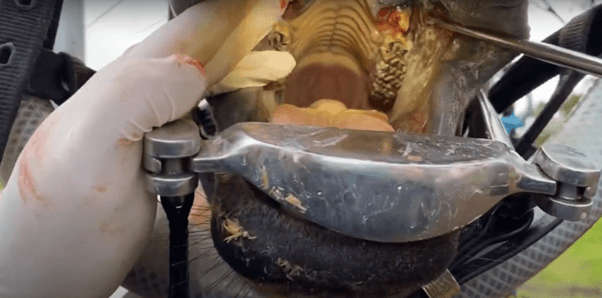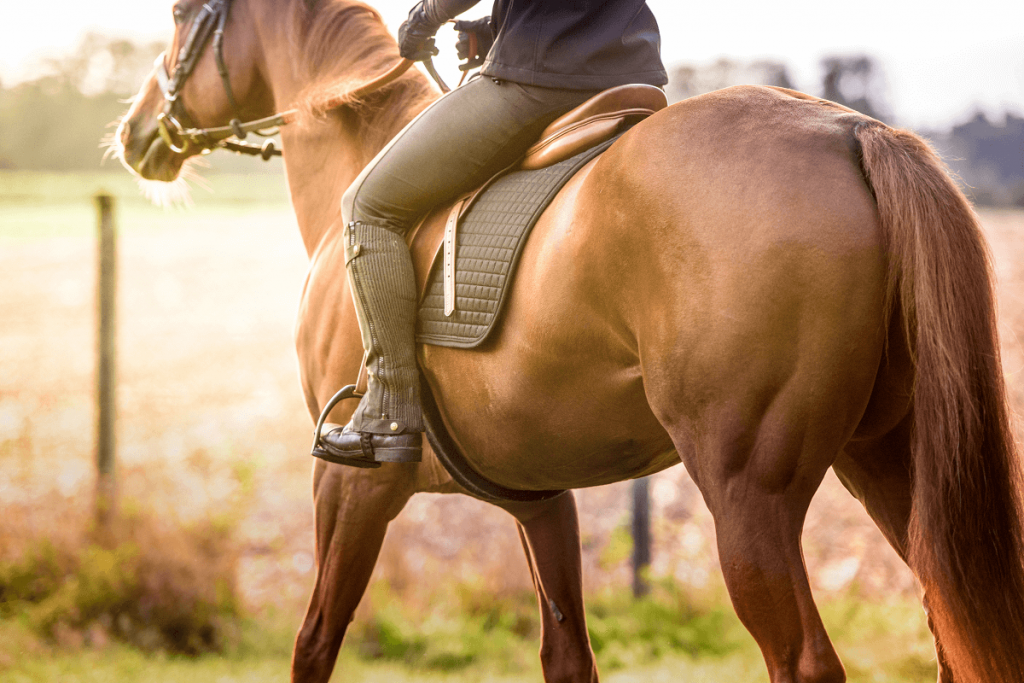A horse’s wolf teeth are a bit like our wisdom teeth. They’re not needed but can cause a number of issues down the track if they’re not removed.
Approximately 70% of horses will develop wolf teeth. They typically erupt between 5-12 months of age – but don’t continue to grow or erupt like other teeth in your horse’s mouth.
So why bother getting rid of your horse’s wolf teeth? Let us explain.
What are wolf teeth?
Your horse’s wolf teeth are small, almost fang-like teeth that almost always appear in the upper jaw. They are located between the incisors and the molars.
Why are they a problem?
The main issue with wolf teeth is their location. They are positioned right where the bit applies pressure in your horse’s mouth. This can cause the cheeks, tongue and soft tissue in the mouth to press against the tooth, and cause pain.
Wolf teeth can also cause other issues, including:
- When they become loose or diseased
- Their location making it difficult to rasp the molars to form a seat for the bit
- Physically restricting the bit if they are on the larger size
- Causing ulcers on the gumline
- When they don’t erupt, which can lead to significant discomfort
This pain and discomfort can lead to a wide range of pain avoidance behaviours, including head tossing, pulling hard, tilting of the head, or not taking the lead.
What does the removal process involve?
The removal of a horse’s wolf teeth is a delicate process. It’s important that the entire tooth is removed intact as if part of the root is left behind, this can lead to a potential infection or abscess.
The first step in removing wolf teeth is sedating the horse and applying a nerve block. This will ensure your horse will be nice and comfortable during the procedure and won’t feel any pain.

We slowly work our way around the outside of the tooth, damaging the ligament and loosening the tooth. We take our time, putting a bit of pressure on the tooth before twisting. This slowly weakens the tooth’s hold over time and allows us to delicately remove the tooth without fracturing it.
Following the extraction, we give the horse a tetanus injection, unless they are completely up to date with their tetanus vaccinations. We also give the horse some pain relief afterward as well to ensure they are comfortable.
When is it best to have my horse’s wolf teeth removed?
We strongly advise that wolf teeth are removed before your horse is bitted, rather than waiting to see if the teeth cause any issues. This will help to minimise or prevent any learned behaviours during that breaking-in process. Also, the younger the horse, the easier it is to remove the teeth.
Want to learn more?
To see the removal of a horse’s wolf teeth for yourself, check out this video of Dr Lachie removing some seriously large wolf teeth!
Like anything to do with your horse’s teeth, we strongly recommend that you engage a qualified veterinarian who has undertaken additional training in equine dentistry to remove wolf teeth.
Dr Lachie and the team at Cameron Veterinary Services are passionate about the health of horses’ teeth and apply the latest knowledge and techniques in treating your animals.
To book a visit from one of our equine vets, give us a call on 08 8318 1801.



